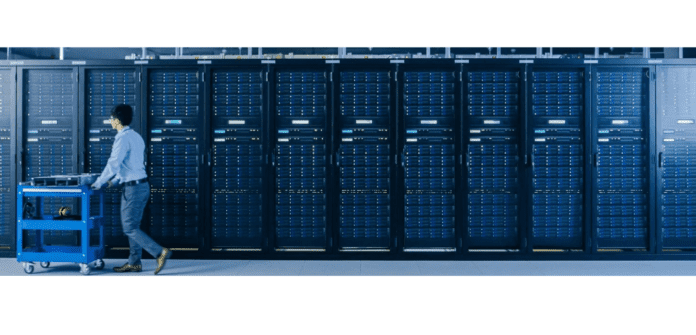As organisations become increasingly reliant on IT systems and data to keep their operations running at optimal efficiency, business continuity is essentially dependent on power supply. Regardless of the industry, it is undeniable that energy resources are fundamental for companies to remain operational and competitive. But what happens to the systems during unexpected power disruptions?
This is what uninterruptible power supplies (UPSs) are here for: supplying clean backup power to IT and other critical systems. It can mean the difference between business as usual and lost data and hours’ worth of productivity in the event of power outages. Strings of batteries, which are constantly charged when not in use, power UPSs during the several minutes of ride-through time, where data centers switch over to an auxiliary power source, such as a second utility feed or a generator or an alternate energy source e.g Fuel cell or renewable energy.
The rise of unplanned downtime
While the cost of downtime varies widely by industry,a 2021 report by Ponemon Institute showed that the duration of unplanned outages has risen steadily in the past seven years. The average duration rose from 86 minutes in 2013 to 101 minutes in 2020. The leading causes of edge and core data center downtime, the study stated, are UPS battery failure, UPS failure, cyber attacks, IT equipment failure and human error. It then revealed that survey respondents believed that the best ways to prevent unplanned outages is to invest in improved equipment, enhance security practices, and prepare redundant infrastructure equipment.
Lithium-ion Technology
Many companies depend on remote and edge data centers, server rooms and network closets to host their data. Often, these facilities rely on UPS systems for backup power delivery in crucial moments of outages. Thus, organisations need to ensure that their UPS systems are powered by efficient batteries that can guarantee continued powered supply to compensate.
In the past five years, lithium-ion batteries have been the most reliable source of stored energy for traditional data centers. It entered the UPS field recently and changed the game. Best known for powering laptops and other mobile devices, the revolutionary lithium-ion technology has provided solutions to the drawbacks of lead-acid batteries, which used to be the go-to energy source for UPS applications.
Reliable and robust, lithium-ion as an energy source for UPS systems has gained widespread attention due to its capacity to power organisations’ operations, including demanding applications, to drive increased productivity. Here is a closer look at the practical benefits of lithium-ion-powered UPS:
● More compact, lightweight and flexible. Lithium-ion batteries are 40-60% lighter in weight and 40% smaller footprint than their traditional counterparts. This translates into a remarkable power density level, where less space is needed to deliver the same amount of power.
● Lasts longer. With around twice or thrice the lifespan of lead-acid batteries, lithium-ion batteries are considered superior in terms of longevity, offering a service life of more than eight to ten years. They even often outlast the UPS itself, providing hassle-free UPS maintenance with fewer or no battery replacements throughout its course.
● High Cycle Life. Unlike traditional VRLA solution, Lithium Ion batteries offer significantly higher cycle life, allowing enhanced application features. Grid Support Enabled UPSs are gaining popularity in the industry that help support smart grid initiatives, frequency management, demand management services with peak shaving systems. These applications need more frequent charge and discharge of the batteries which Lithium battery can offer
● Lower total cost of ownership. Around 50% of total costs is the estimated savings from lithium-ion batteries throughout their life cycle. This is mainly due to their longer life expectancy, high-temperature resilience and reduced costs for maintenance and construction. While lead-acid batteries are at a lower market price upfront, lithium-ion batteries offer a significantly lower total cost of ownership (TCO).
● Comes with advanced integrated battery management system. Lithium-ion batteries for UPS are integrated with an advanced battery management system (BMS), which provides accurate information on the battery’s health, runtime and more. It also offers protection from current, temperature and over- or under- charging.
● Faster recharge. As it offers backup energy, UPSs need fast-charging batteries. Lithium-ion batteries only take two to four hours to recharge to full capacity, whereas lead-acid batteries need an average of 12 hours.
UPSs can also detect and compensate for anomalies such as power sags and surges, which are temporary power fluctuations that can damage attached computers and other electronics. With the many benefits it offers, a UPS powered by lithium-ion is crucial to secure critical operations while reducing operational costs. With improved overall performance, lithium-ion batteries can help ensure uninterrupted IT deployments. The combined benefits it offers in performance, reliability, and cost-effectiveness continually prove to be a dependable investment to power mission-critical IT infrastructures.
Source Received to mail.






